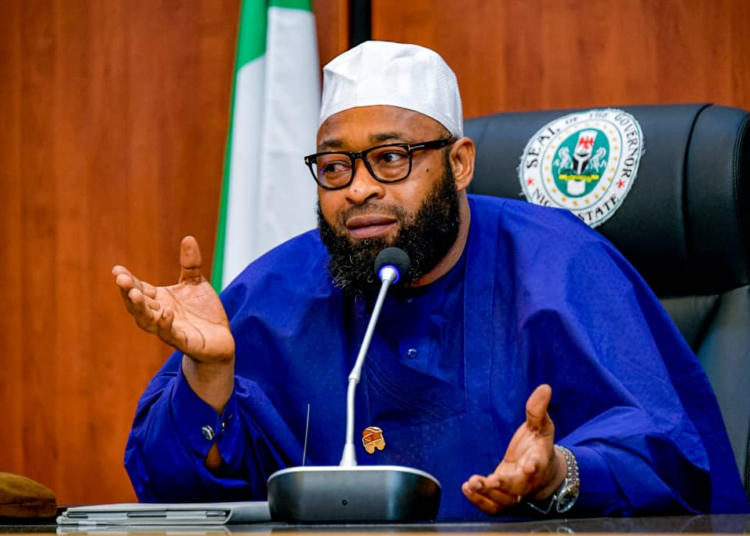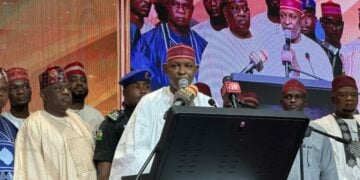Governor Mohammed Umaru Bago’s entrance into politics was peculiar. At a time, many politicians were busy joining the government in power in 2011, he opted for the newly-formed Congress for Progressive Change (CPC) directly from his banking job. The courage to not join the PDP, then the ruling and only visible party in the state, endeared him to many. His followership afterwards was unprecedented. He contested and won the House of Representatives seat for Chanchaga federal constituency. He served four terms in the House before contesting this year’s election under the platform of the All Progressives Congress (APC). He was victorious and became the 15th governor of the state.
Bago’s emergence as the helmsman in Niger State has unusually dislodged the old order in the state, and he has not disappointed. He hit the ground running, taking governance to another level. The few months he has served as governor have been remarkable. Beyond mere zeal, he has matched words with action. Expending unusual energy, he has done many things that had been left undone in the state for years.
In a bid to fulfil his campaign promises, Bago started by narrowing his vision for a “New Niger” to provision of social amenities, sustainable economy, good governance and urban renewal. He immediately commenced the expansion of major cities such as Minna (the state capital), Bida and Suleja in his urban renewal and rural transformation programmes. For the first time, the construction of a six-lane road with a flyover is ongoing in the state capital under urban renewal contracts to the tune of N200 billion.
Governor Bago has restored sanity on the Kaduna–Suleja- -Abuja highway by banning traders from displaying their wares there. He also stopped indiscriminate parking of vehicles on the highway during the Madalla market observed every Thursday. Wrong parking of vehicles had hitherto caused gridlocks, making it difficult for road users to access the road during market days. The previous administration had battled with this menace but was unable to resolve the social disorder. But, within a month in office, Bago put an end to the menace, to the delight of road users.
When he assumed office on May 29, this year, the governor took the gauntlet to demolish buildings on waterways. Even the Chanchaga Divisional Police Post was affected. He also matched words with action by immediately providing another befitting edifice as Chanchaga Divisional Police Headquarters, following the demolition of the old structure built on a water pipeline more than 30 years ago, thereby denying over 200 residents of water supply. The Bago administration has cleared the N600 million backlog of the Abuja Electricity Distribution Company (AEDC) tariffs owed by all government agencies.
The debts, which accrued during the last administration, had led to the disconnection of offices from power supply. On the educational front, the students in boarding secondary schools can now boast of a better feeding arrangement. Sanity has returned to the schools. He has approved a monthly payment of N30 million to the National Examination Council (NECO) to offset the backlog of debts owed the council, to avert withholding the results of candidates from the state’s public schools. Governor Bago has also extended the same payment to WAEC by clearing the outstanding N205 million owed the council, and the results withheld have been released.
To cushion the effect of fuel subsidy removal, his government also awarded a contract for the purchase of 200 compressed natural gas (CNG) buses to provide free transportation to students and at a subsidized rate for civil servants. He has also kick-started the process of establishing a university of education in Minna to address the problem of education in the state. The certificate for establishment of the university has been granted by the National Universities Commission (NUC), with a committee set up to transform the state College of Education, Minna, to University of Education. N20 billion has been approved for its takeoff. Similarly, the Bago government has signed contracts worth N30.5 billion for the conversion of the old Shiroro Hotel, abandoned for years, to Ibrahim Badamasi Babangida University Teaching Hospital (IBBUTH), and the resumption of the development of the three-arm zone, Minna.
On security, the youth restiveness that almost took over Minna, the state capital, has been arrested by the community approach of the governor. Bago simply keyed into the method of engaging parents to become responsible to their children. Like a magic wand, the move put an end to incidents of rape, robbery, gang fights, kidnapping and other forms of criminality among restive youth in the state capital. Apart from the community approach, the governor made enforcement possible by distributing 20 operational vehicles to the Niger State Police Command, DSS, NSCDC, NDLEA and other non-conventional security agencies.
Recognizing that there were likely leakages in the state’s treasury, the government started the enforcement of the 2022 Revenue Law, freezing the state’s account to create a single dashboard for the state’s finances, for transparency and accountability, and commenced the process of automated salary and pension payment. Through the financial discipline he adopted, the state government has been able to save N10 billion within four months. The Bago-led administration has also been able to pay a part of the salary backlog of local governments for the year 2020 that had been left unpaid.











